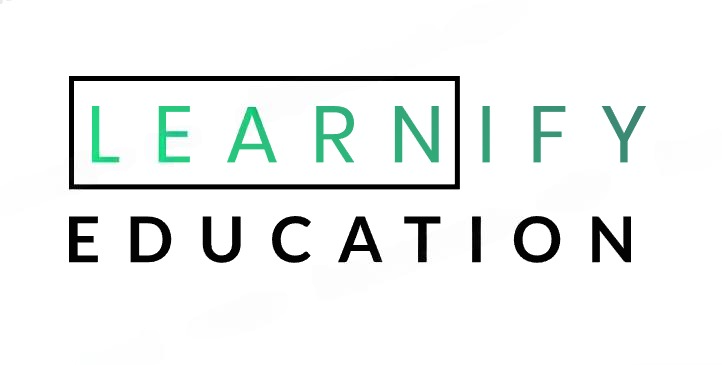Flexibility
Programs are designed to accommodate working professionals with evening or weekend classes and online courses, allowing them to balance work and studies effectively.













In today’s fast-paced world, balancing a job and higher education can be a daunting task. However, the B.Tech program for working professionals is designed to cater to the needs of those who wish to advance their careers without compromising their current employment. This program offers a unique blend of flexibility and quality education, enabling professionals to gain in-depth technical knowledge and practical skills while continuing to work.
This comprehensive guide will walk you through everything you need to know about pursuing a B.Tech as a working professional, including detailed course information, reasons to pursue this path, eligibility criteria, top universities, specializations, and more. Whether you’re a diploma holder looking to upgrade your qualifications or a working professional aiming for career growth, this guide is tailored to help you make an informed decision. Let’s explore the myriad opportunities that a B.Tech for working professionals can offer.

Flexibility
Programs are designed to accommodate working professionals with evening or weekend classes and online courses, allowing them to balance work and studies effectively.
Career Advancement
A B.Tech degree enhances skills and qualifications, making professionals eligible for higher-level positions and better job opportunities.
Higher Salary
With advanced technical knowledge and a recognized degree, professionals can negotiate higher salaries and secure promotions.
Skill Enhancement
The program equips professionals with updated technical skills and industry-relevant knowledge, keeping them competitive in the job market.
Networking Opportunities
Interaction with peers, faculty, and industry experts during the course helps in building a professional network, which can be beneficial for career growth.
Specializations
Offers a chance to specialize in specific fields of engineering, aligning with career goals and interests.
Job Security
Advanced qualifications and skills provide greater job security in a competitive job market.
Personal Fulfillment
Achieving a higher degree of education can lead to personal satisfaction and a sense of accomplishment.
Practical Learning
Emphasis on practical and hands-on learning helps in applying theoretical knowledge to real-world scenarios, enhancing problem-solving skills.
Employer Support
Many employers support their employees in pursuing higher education by providing financial assistance or flexible work schedules.
After Gaining Work Experience
Ideal when you have some years of professional experience and clear career goals.
Career Stagnation
When you feel your career growth has plateaued and you need advanced qualifications for advancement.
Financial Stability
When you are financially stable enough to invest time and money in further education.
Flexible Work Environment
When your job offers the flexibility to balance work and study commitments.
Employer Support
If your employer provides support, such as financial aid or flexible working hours, for further education.
Technological Changes
When you need to update your skills to keep up with technological advancements in your field.
| College/University | Fees per Year (INR) |
|---|---|
| Indian Institutes of Technology (IITs) | 2,00,000 – 2,50,000 |
| National Institutes of Technology (NITs) | 1,25,000 – 1,80,000 |
| Indian Institute of Engineering Science and Technology (IIEST) | 1,50,000 – 2,00,000 |
| State Government Engineering Colleges | 30,000 – 1,00,000 |
| Delhi Technological University (DTU) | 1,90,000 |
| College of Engineering Pune (COEP) | 85,000 |
| Jadavpur University | 10,000 – 50,000 |
| Anna University | 50,000 – 75,000 |
| University | NIRF Ranking 2024 |
|---|---|
| Indian Institute of Technology Madras | 1 |
| Indian Institute of Technology Delhi | 2 |
| Indian Institute of Technology Bombay | 3 |
| Indian Institute of Technology Kanpur | 4 |
| Indian Institute of Technology Kharagpur | 5 |
| Indian Institute of Technology Roorkee | 6 |
| National Institute of Technology Rourkela | 7 |
| Indian Institute of Technology Gandhinagar | 8 |
| Indian Institute of Technology Hyderabad | 9 |
| National Institute of Technology Tiruchirappalli | 10 |
| Indian Institute of Technology Jodhpur | 11 |
| Indian Institute of Technology Mandi | 12 |
| Indian Institute of Technology Bhubaneswar | 13 |
| Indian Institute of Technology Patna | 14 |
| Indian Institute of Technology Palakkad | 15 |
| Indian Institute of Technology Ropar | 16 |
| Indian Institute of Technology Dhanbad | 17 |
| Indian Institute of Technology Varanasi | 18 |
| Indian Institute of Technology Bhilai | 19 |
| Indian Institute of Technology Jabalpur | 20 |
| College/University | Program Name | Fees (Approx.) |
|---|---|---|
| Indira Gandhi National Open University (IGNOU) | B.Tech for Working Professionals | ₹50,000 per year |
| United Correspondence College | B.Tech Online Program | ₹60,000 per year |
| University of Delhi School of Open Learning (DU SOL) | B.Tech Online Program | ₹70,000 per year |


Educational Qualification
10+2 with Physics, Chemistry, and Mathematics, or a relevant engineering diploma.
Work Experience
Typically 1-2 years of professional experience required.
Age Limit
Generally no upper age limit; varies by institution.
Entrance Exams
Some programs may require passing an entrance exam or interview.
Standard
3 to 4 years.
Flexible Options
Can extend to 4-6 years for part-time or online programs.
Lateral Entry
Diploma holders may complete in 2-3 years if entering directly into the second year.
| Exam Name | Purpose | Subjects/Details |
|---|---|---|
| GATE | Commonly for M.Tech, some B.Tech programs accept it | Engineering and Science subjects |
| JEE Main | Primarily for undergraduate admissions, some professional courses | Physics, Chemistry, Mathematics |
| BITSAT | For BITS Pilani’s Work Integrated Learning Program | Physics, Chemistry, Mathematics, English |
| Amity Entrance Test | For Amity University’s B.Tech programs | Varies by program, typically includes engineering subjects |
| VITEEE | For VIT University, some flexibility for working professionals | Physics, Chemistry, Mathematics |
| Institutional Assessments | Specific tests or assessments by individual universities | Varies by institution |
| Subject | Book Title | Author(s) |
|---|---|---|
| Mathematics | "Higher Engineering Mathematics" | B.S. Grewal |
| "Advanced Engineering Mathematics" | Erwin Kreyszig | |
| Physics | "Concepts of Physics" | H.C. Verma |
| "Engineering Physics" | D.K. Singh | |
| Chemistry | "Engineering Chemistry" | J.C. Kuriakose, J. Rajaram |
| "Physical Chemistry for Engineers" | K.J. Laidler, J.H. Meiser | |
| Computer Science | "Introduction to the Theory of Computation" | Michael Sipser |
| "Operating System Concepts" | Abraham Silberschatz, Henry Korth | |
| Electrical Engineering | "Electrical Engineering: Principles and Applications" | Allan R. Hambley |
| "Fundamentals of Electrical Engineering" | David A. Bell, George L. Nason | |
| Mechanical Engineering | "Engineering Mechanics: Dynamics" | J.L. Meriam, L.G. Kraige |
| "Mechanics of Materials" | Ferdinand P. Beer, E. Russell Johnston | |
| Civil Engineering | "Structural Analysis" | R.C. Hibbeler |
| "Building Construction" | S.C. Rangwala | |
| Data Science | "Introduction to Data Science" | Laura Igual, Santi Seguí |
| "Data Science from Scratch" | Joel Grus | |
| Artificial Intelligence | "Artificial Intelligence: A Modern Approach" | Stuart Russell, Peter Norvig |
| "Pattern Recognition and Machine Learning" | Christopher Bishop |
| Program | Fees per Year (INR) |
|---|---|
| B.Tech (General) | 1,50,000 – 2,00,000 |
| B.Tech (Computer Science) | 1,75,000 – 2,25,000 |
| B.Tech (Electronics and Communication) | 1,75,000 – 2,25,000 |
| B.Tech (Mechanical Engineering) | 1,50,000 – 2,00,000 |
| B.Tech (Civil Engineering) | 1,50,000 – 2,00,000 |
| Aspect | B.E. (Bachelor of Engineering) | B.Tech (Bachelor of Technology) |
|---|---|---|
| Focus | Theoretical concepts and principles. | Practical applications and technological skills. |
| Curriculum | Emphasizes fundamental engineering theories and principles. | Emphasizes practical skills, technology, and application-based learning. |
| Approach | More academic and research-oriented. | More industry-oriented and hands-on experience. |
| Duration | Typically 3 to 4 years. | Typically 3 to 4 years. |
| Course Structure | May include more subjects related to theory and fundamentals. | Includes more practical training and technical skills. |
| Career Path | Often leads to roles in research, academic, or specialized fields. | Generally prepares students for technical roles in industry and engineering. |
| Degree Awarded | Bachelor of Engineering. | Bachelor of Technology. |
| Institution Type | Traditionally offered by engineering colleges and universities. | Offered by a variety of technical institutes and universities. |
Electives: Electives vary by institution but often include:













